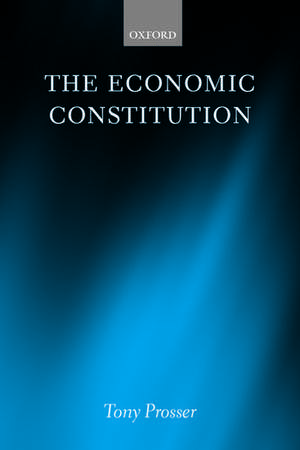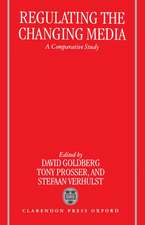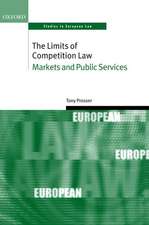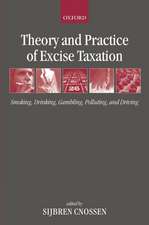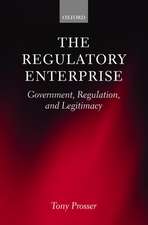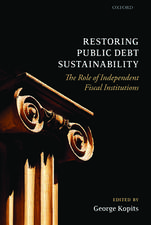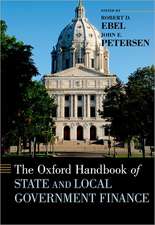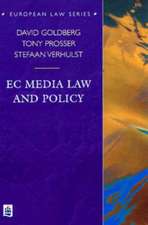The Economic Constitution
Autor Tony Prosseren Limba Engleză Hardback – 12 mar 2014
Preț: 746.01 lei
Preț vechi: 1071.37 lei
-30% Nou
Puncte Express: 1119
Preț estimativ în valută:
142.79€ • 147.15$ • 120.55£
142.79€ • 147.15$ • 120.55£
Carte tipărită la comandă
Livrare economică 21-27 februarie
Preluare comenzi: 021 569.72.76
Specificații
ISBN-13: 9780199644537
ISBN-10: 0199644535
Pagini: 304
Dimensiuni: 162 x 241 x 26 mm
Greutate: 0.6 kg
Editura: OUP OXFORD
Colecția OUP Oxford
Locul publicării:Oxford, United Kingdom
ISBN-10: 0199644535
Pagini: 304
Dimensiuni: 162 x 241 x 26 mm
Greutate: 0.6 kg
Editura: OUP OXFORD
Colecția OUP Oxford
Locul publicării:Oxford, United Kingdom
Recenzii
The book provides a wealth of detail on the ways British law and practice has changed, including the redefinition of fiscal rules, thetransformation of the roles played by the Treasury and the Central Bank, and the new ways in which EU and British law and politics have interplayed.
...this is a remarkable monograph...the book provides a wealth of detail on the ways British law and practice has changed, including the redefinition of fiscal rules, the transformation of the roles played by the Treasury and the Central Bank, and the new ways in which EU and British law and politics have interplayed (and eventually clashed).
One puzzling lacunae in the emerging Anglophone scholarship on public law is the issue of economic governance... Into this lacuna steps Tony Prossers The Economic Constitution. And simply put, its implications are ground-breaking. This is the first, systemic, constitutional analysis of what is probably the single most powerful tool in the British states regulatory apparatusnamely, the power to collect and redistribute wealth... The Economic Constitution provides a comprehensive overview of the various actors and institutions and procedures that constitute economic governance in the UK.
Prosser's book not only achieves an exposition of the various workings of the organs of the economic constitution, but also provides fertile grounds for future research on the subject... Given the centrality and importance of the question of regulation within the legal analysis of the economic constitution, this issue is likely to be an important topic for future debate - a debate which has been effectively begun and deliniated in this book.
It provides in-depth coverage not available elsewhere
...this is a remarkable monograph...the book provides a wealth of detail on the ways British law and practice has changed, including the redefinition of fiscal rules, the transformation of the roles played by the Treasury and the Central Bank, and the new ways in which EU and British law and politics have interplayed (and eventually clashed).
One puzzling lacunae in the emerging Anglophone scholarship on public law is the issue of economic governance... Into this lacuna steps Tony Prossers The Economic Constitution. And simply put, its implications are ground-breaking. This is the first, systemic, constitutional analysis of what is probably the single most powerful tool in the British states regulatory apparatusnamely, the power to collect and redistribute wealth... The Economic Constitution provides a comprehensive overview of the various actors and institutions and procedures that constitute economic governance in the UK.
Prosser's book not only achieves an exposition of the various workings of the organs of the economic constitution, but also provides fertile grounds for future research on the subject... Given the centrality and importance of the question of regulation within the legal analysis of the economic constitution, this issue is likely to be an important topic for future debate - a debate which has been effectively begun and deliniated in this book.
It provides in-depth coverage not available elsewhere
Notă biografică
Tony Prosser is Professor of Public Law at the University of Bristol, teaching public law and socio-legal studies. He has written or edited 14 books, and has written over 120 articles and book chapters. His main interests are in regulation, especially of public utilities and the media, and comparative public service law.
